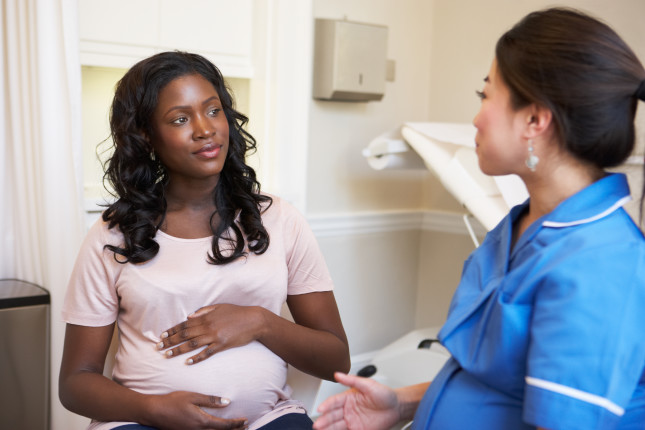-
Race, Bias, and Equity in Prenatal Care: No Pregnant Woman is the Same
June 26, 2019 By Amanda King
It’s disturbing to see the data going in the wrong direction and it means we have to go beyond what we’ve been doing, said Terri D. Wright, Vice President of Programs and Community at the Eugene and Agnes E. Meyer Foundation at a recent event on equitable prenatal care in the United States hosted by The Jennifer Bush-Lawson Foundation and the American Medical Association at Duke University in DC. “We can’t do the same things the same way and expect a different outcome,” she said. “We’ve got to do something different.”
According to the Centers for Disease Control and Prevention (CDC), the United States is one of three countries in which maternal deaths are rising, said Dr. Aletha Maybank, Chief Health Equity Officer at the American Medical Association. The CDC’s recent report found that approximately 700 women die every year in the United States from pregnancy-related complications, and pregnancy-related mortality numbers reflect racial and ethnic disparities. Black women are 3.3 times more likely to die from pregnancy-related causes, and Native American women are 2.5 times more likely to die than white women. “We know that 60 percent of these deaths are actually preventable,” said Maybank.
What are Medical Schools Doing?
When asked how medical schools are training doctors about implicit and explicit bias, Dr. Sarahn Wheeler, Director of Duke’s Prematurity Prevention Program and Diversity & Inclusion, noted that Duke University School of Medicine offers a social determinants of health course, and Wheeler, through her various roles, has ensured that obstetrics, gynecological care, and maternal health are topics covered in this course. It has been challenging for some of the students to hear about concepts like privilege, structural racism, and bias, she said. Including discussions like these in medical school training helps improve quality of care and respectful patient-provider care as a whole.
Lived Experiences
The panelists agreed that a woman’s “lived experiences” rather than her physiological make-up, i.e., race or ethnicity, are what should be considered through her pregnancy and post-partum stages. Wright provided four facts women of color face even before pregnancy begins that set them apart from a one-size-fits-all categorization:
1) Weathering, a hypothesis that the health of black women may decline during early adulthood as a result of cumulative socioeconomic and racial disadvantage;
2) Racism and explicit bias prevails, regardless of socioeconomic status;
3) Women of color face chronic stress, which elevates and keeps stress hormones high, regardless of their socioeconomic status; and
4) Due to these factors, a woman of color’s pregnancy and pregnancy outcomes are adversely impacted, which is only exacerbated by a woman’s socioeconomic status.
Wright said, in regards to physician care of pregnant women of color, “This may be a scenario where we don’t treat everybody the same. That we recognize the lived experiences of women of color and how it manifests and plays out physiologically and mentally.”
Read More:
- A new Wilson Center report showcases six steps to end preventable maternal mortality.
- Everybody Counts: Maternal Mortality podcast explores why maternal mortality is a global issue and policy solutions that can keep mothers healthy.
- What Explains the United States’ Dismal Maternal Mortality Rates?
Sources: American Medical Association, Duke University Global Health Institute, Jennifer Bush-Lawson Foundation, Meyer Foundation, U.S. Center for Disease Control, U.S. National Institute of Health
Photo Credit: Photo via Shutterstock. All rights reserved.
Topics: Dot-Mom, featured, gender, global health, health systems, human rights, maternal health, On the Beat
 A Publication of the Stimson Center.
A Publication of the Stimson Center.



